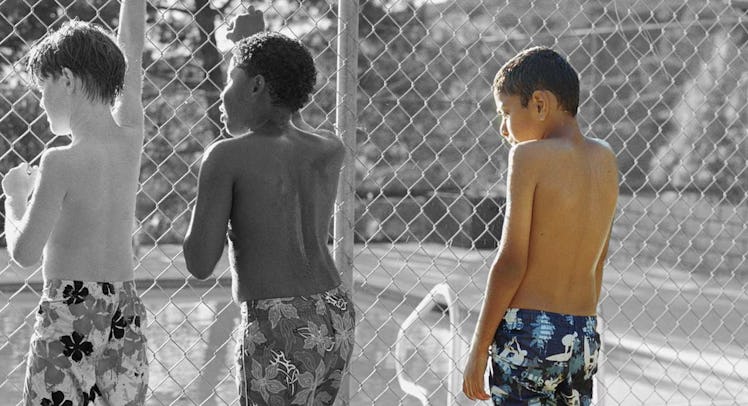My Son Thinks Everyone Is His Friend. I’m Teaching Him That’s Not True.
One is aware of Caleb. One does not like him.

It’s summer, which means my kid is not in school, which, in turn, means daily contact with other children isn’t a given. During the school year, he would see his kindergarten classmates more than he would see me. There are about 18 of them or so with names like Astley, Minnow, Eugenia and Caleb. Because he could not avoid those kids, it was necessary during the school year to paint his interpersonal relationships and social skills in rosy shades of affection. Even if Caleb was being a little sh*t to my son, I would pretend that they were just buddies going through a rough patch.
“Even friends have bad days,” I’d say as my kid looked at me through hot tears. But now it’s summer and f*ck it. Caleb is not my son’s friend.
Children, in my experience, are not blind to the world. But they have very circumscribed areas of social focus that extend to people they recognize as being relevant to them. Occasionally, they’ll notice strangers, often on the subway and often in a very loud verbal way (“Daddy, why is that man so little?”). But, by and large, their emotional investments are not diversified. No doubt because it is in the interest of smooth social interaction, we parents often tend to give them a limited means of contextualizing these relationships — especially when the cohort are our children’s peers. Kids learn about friends early, acquaintances never, and enemies by surprise. So, norms dictate that Caleb is a friend and Minnow is a friend and Astley is a friend.
Parents know this is bullshit and our kids strongly suspect this is bullshit. I think it’s in my sons best interest that we acknowledge that.
I recently ran into Caleb’s mom at the park. We were both alone. “We should have a playdate!” she said. Or I said it. I don’t know. “We should have a playdate!” is what parents say when they have nothing else to say to each other. Later that evening, when I floated the idea past my son, he immediately shook his head. “Caleb isn’t nice to me,” he said. I started the same old palaver I fed the kid during the year.
“Oh that’s not true!” I said. “He’s your friend.”
My son looked at me and said, “No, he’s not.”
I actually don’t think he looked at me. He kept his eyes down because he was afraid to admit to me that Caleb wasn’t his friend. He thought, I’m sure, that I’d be disappointed that Caleb wasn’t his friend because I gas on so much about friendship. But kids aren’t dumb. He knows Caleb doesn’t make him feel good. If this is what I’m calling a friend, well, who needs friends at all?
It was clearly time to introduce a new social category: acquaintance. Caleb is an acquaintance. He is recognized as a person within the orbit of familiarity with whom one does not share the bonds of sentiment. One is aware of Caleb. One does not like him.
As I explained this new class of people to my son, I did feel a hint of sadness, as if I were sheering away a bit of his innocence. Hitherto, those within his scope of awareness were friends by default. The trust that the world would embrace him formed the halo of naiveté we so often associate with adorability. But it was always a trust with a half-life. To the extent that I was preserving that purity for my own reasons–my son is cute and that’s nice–I was betraying him. All that talk of friendship, or a portion of it anyway, wasn’t in his best interest.
Conflating friend and acquaintance is a useful lie on a number of levels. Practically, for children, it holds water well enough and long enough that interpersonal interactions are made more harmonious. There’s also some effective determinism there: You say friend long enough and a friendship sometimes takes off. But the brute force of definition, not to mention the forced intimacy of playdates, can’t fix what’s not there to begin with. Eventually the truth will out. On another level, for parents the myth of friendship is a convenient dodge that allows for more interfamily schmoozing. Caleb’s mother is a journalist, for instance, and I really like hanging out and drinking rosé with her. If Caleb and my kid weren’t friends, there would be no way, rosé.
But ultimately, the lie will out. And rather than pollute the idea of friendship by filling the bucket with sour relationships, it was, I realized, better to put Caleb in another category entirely. The world will be a shade darker for my son, but he’ll see people better through that shade. Caleb is my son’s first acquaintance. When school begins this year, my son will hug Astley and Minnow and Eugenia. But he’ll nod, just as I showed him, to Caleb.
This article was originally published on